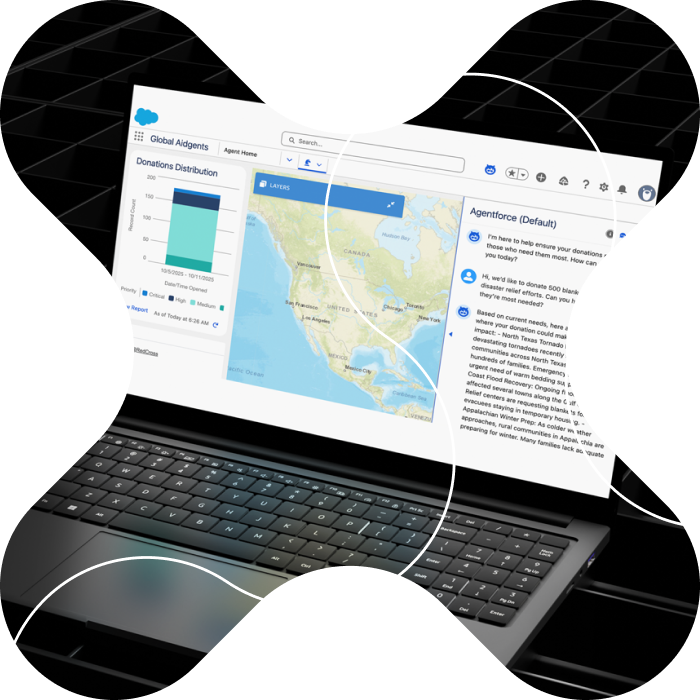Unlike many languages, the Java programming language has an exceptionally long life span in the software development community. Initially released in 1995, Java should be considered ancient and nearly obsolete. Yet, it remains one of the most popular programming languages in use today.
According to the TIOBE Index, Java is currently the third-most-popular programming language in the world.
Java is not only maintaining (and in some cases, growing) its user base--the language is also becoming an essential tool for cloud computing development, in addition to several other uses. This bodes well for the future of Java and suggests that the language’s user base will remain stable over the next decade or more.
A Brief Introduction to Cloud Computing
Cloud computing may seem like a revolutionary concept--but the concept of accessing data remotely from a computer terminal traces back to the 1950s. In the early days of computing, organizations could only afford a mainframe for the entire corporate or university campus.
While today’s computer users access the hard drive that is installed on their computer itself--users in the past used their computers as “dumb terminals.” These were computers that did not have a hard drive and were incapable of storing data locally. Their sole purpose was to access data stored on the mainframe.
If this sounds similar to modern computing, it’s because it is! The only difference is that today’s cloud computing stores data on massive servers located at your hosting company’s headquarters. Additionally, today’s users access this data using an internet connection rather than the wired connections required in the 1950s.
While cloud computing may seem omnipresent today, the technology only reached the mainstream in 1999 with the launch of Salesforce.com--which provided companies with a revolutionary cloud-based enterprise resource planning software.
Amazon launched its cloud services initiative in 2002 with Amazon Web Services (AWS). AWS continues to be the most important cloud company in the tech industry today--accounting for 33% of the cloud provider market share.
Why Do Java and Cloud Computing Matter?
Cloud computing is considered to be so revolutionary because it frees up businesses from maintaining their servers, paying for a bloated IT department, and being responsible for cybersecurity in a rapidly-changing security landscape.
These benefits are the primary reason why cloud computing in general, and software as a service (SaaS) in particular, are becoming essential tools for modern business.
In addition, while the cloud computing market has been growing steadily since the mid-2000s, the COVID-19 crisis rapidly accelerated cloud adoption in a variety of sectors--namely finance, insurance, and healthcare.
The rise of work from home contributed significantly to the demand for cloud computing. For the first time in history a large share of the white collar world was working from home--and needed to be able to access documents, applications, and sensitive information from home.
Experts predict that the market for cloud computing will continue to grow by leaps and bounds over the next decade--and the Java programming language is expected to play a large role in this type of software development.
Java’s Essential Features for Cloud Development
Java is not only one of the most popular languages for software engineering in general--it is also incredibly popular among cloud computing developers in particular. This popularity is a result of Java’s already huge user base and its wide array of useful features and toolkits.
In particular, Java developers prize the language for cloud computing development because of its:
- Widespread Popularity
- Platform Independence
- Long-Term Stability
- Data Privacy Inclusions
- Robust IDEs & Library Collections
We’ve already touched on Java’s popularity and longevity. The Java programming language has been around since 1995 and is the 3rd-most popular language in use today. It is also supported by Oracle--one of the largest software development companies in the world.
This institutional support means that Java is consistently updated and developer feedback is taken seriously. Oracle announced in 2018 that the language will no longer have regular major releases because of its established stability. Instead, the company will release minor fixes twice a year on a regular schedule.
Another of the main strengths of Java is its platform independence. The well-designed language works smoothly across browsers, operating systems, and devices. This makes SaaS development a simpler process since engineers can build a robust application that works on all common devices using a compiler that automatically converts source code into executable code.
Software engineers have long prized Java because the language’s supporters at Oracle have taken cybersecurity seriously since the language’s inception in 1995--with the language being secure by design.
Some of Java’s security features include its compiler error checker, recommended cybersecurity protections, and safeguards against memory space attacks. These features are why many cybersecurity experts rank Java as one of the most secure programming languages.
Java, by virtue of its extensive user base and long history, also comes with one of the largest arrays of integrated development environments (IDEs) and libraries of any programming language used today. The myriad IDEs simplify the development process through time-saving tools and debugging programs, while libraries help engineers develop cleaner APIs and test libraries outside of the application--streamlining the troubleshooting process.
Finally, developers prize Java because of the huge network of Java cloud development tools that make the software engineering process more straightforward, efficient, and error-free. Some of the most popular development tools are:
- AWS SDK for Java
- Oracle Java Cloud Service
- Cloudfoundry
- Heroku Java
- Google App Engine
- IBM SmartCloud
These features are not only essential for Java’s current popularity. These benefits will also ensure that Java remains essential for cloud computing developers in both the near- and long-term.
The Future of Java and Cloud Computing
Experts continue to predict that the Java programming language will remain vibrant and maintain its large user base, partially as a result of its importance to cloud computing.
Cloud computing developers prize the programming language because of its use of distributed and parallel computing, advantage in web application development, and wide array of automation tools.
Cybersecurity
In the future, expect Java to continue to emphasize cybersecurity features and data privacy protections. That’s because, while the cloud computing market has been a boon for business growth, it has led to a huge increase in successful cyberattacks as well. In fact, recent research found that 98% of enterprises have suffered from a data security breach in the past 18 months.
One of the most important data privacy protections found in Java is the ability to build a secure learning environment. This allows engineers to run untrusted code independent of the software in development--eliminating the risk of 3rd-party code negatively impacting the final product.
Flexible Utility
Some experts within the software development industry expect Java’s usage numbers to continue to rise. That is in part because the language is so flexible, with many industry leaders referring to the programming language as a “Jack of all trades.” This allows it to be utilized for a variety of development projects, in addition to cloud computing.
This ultra-adaptability means that the next generation of organizations is likely to embrace Java in greater numbers--since they can utilize the same engineering team for a huge range of projects, including:
- Cloud Computing
- Mobile Applications
- Data Storage
- Web Applications
- The Internet of Things
Expect to see organizations continue to hire Java cloud developers in greater numbers as the market for cloud computing grows over the next decade.
Growing Chinese Market
One of the most interesting software development statistics is the Java usage number in China, where an estimated 47% of software developers use the language in that country. This has huge implications for the future of the language.
The huge rise in Java and cloud computing in China will impact the entire cloud computing industry, in addition to the Java developer community. Expect to see more attention paid to the Chinese market by Java-supporting Oracle, as well as an increased presence in the global cloud computing market by Chinese cloud services providers like Alibaba Cloud, Huawei Cloud, and Tencent Cloud.





